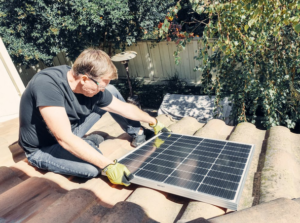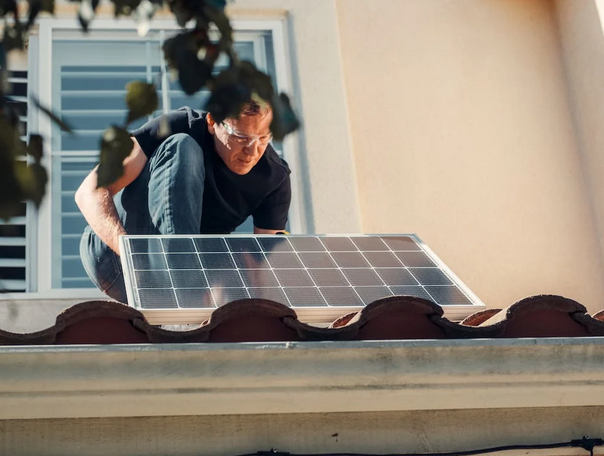Tips to Consider When Setting Up Solar Panels in Your Home
Harnessing solar energy through the installation of solar panels has become an increasingly common option for homeowners seeking sustainable and eco-friendly energy solutions. It can reduce your electricity bills and contribute to a greener environment. However, setting up solar panels requires careful planning and consideration to ensure optimal performance and cost-effectiveness. In this article, we’ll explore essential tips to consider when setting up solar panels in your home.
Assess Your Energy Needs
Before installing solar panels, evaluate your household’s energy consumption. Review your electricity bills to understand your energy usage patterns throughout the year. This assessment will assist you in determining the size and capacity of the solar panel system required to meet your electricity demands efficiently.
Choose the Right Location

Selecting the right position for your solar panels is critical for maximizing sunlight exposure. Solar panels should be installed on a south-facing roof with minimal shading from surrounding buildings or trees. A location with direct sunlight for most of the day will ensure the panels generate the maximum electricity.
Conduct Solar Panel Efficiency Research
Different solar panel models come with varying efficiency levels. Research different brands and variations of solar panels to find the most efficient and reliable ones within your budget. High-efficiency panels may be costlier, but they can generate more electricity over time, ultimately providing better returns on your investment.
Consider Net Metering Options
Net metering allows you to return excess electricity from your solar panels to the grid. You receive credits or monetary compensation for the energy you supply. Investigate whether your local utility offers net metering programs and understand their terms and benefits.
Evaluate Available Incentives and Rebates
Numerous governments and utilities extend incentives and rebates to promote the use of solar panels. These financial incentives can significantly minimize the upfront costs of installation. Research the available incentives in your area and take advantage of them to make the transition to solar energy more affordable.
Work With Professional Solar Installers
While DIY solar panel installation may be tempting, working with professional solar installers is best. Experienced installers have the expertise and knowledge to assess your home’s suitability for solar panels, recommend the right system size, and ensure proper installation for optimal performance and safety.
Consider Battery Storage
If you live in an area with frequent power outages or want to increase energy self-sufficiency, consider including a battery storage system in your solar panel setup. Battery storage enables you to store additional energy generated during sunny periods for use during cloudy days or at night.
Obtain Necessary Permits
Installing solar panels typically requires obtaining permits and complying with local regulations. Before commencing installation, ensure you have the necessary approvals from your local authorities. Your solar installer can guide you through the permitting process.
Regular Maintenance and Monitoring
 Solar panels require minimal maintenance, but periodic cleaning and inspections are essential for optimal performance. Schedule regular maintenance checks and monitor your solar panel system’s output to identify any issues promptly.
Solar panels require minimal maintenance, but periodic cleaning and inspections are essential for optimal performance. Schedule regular maintenance checks and monitor your solar panel system’s output to identify any issues promptly.
Setting up solar panels in your home is a significant investment that can lead to substantial energy savings and environmental benefits. Consider your energy needs, choose the right location, and research efficient solar panels before installing them. Explore available incentives and work with professional installers to ensure a seamless setup. By following these tips, you can embark on a successful solar energy journey and contribute to a more sustainable future for yourself and the planet.…

